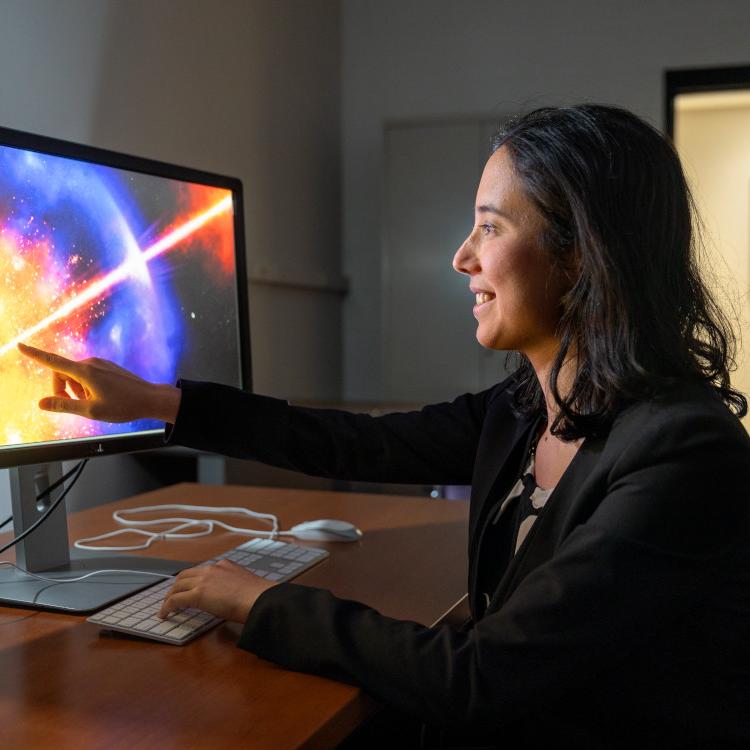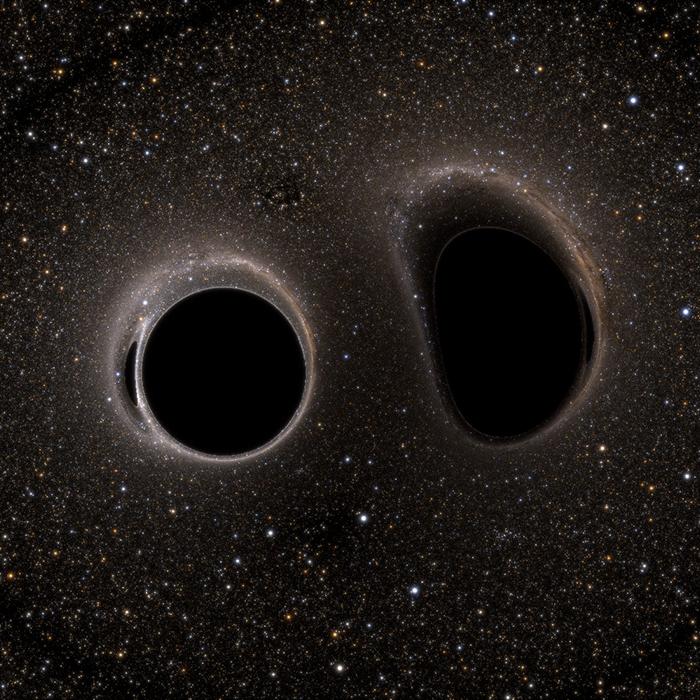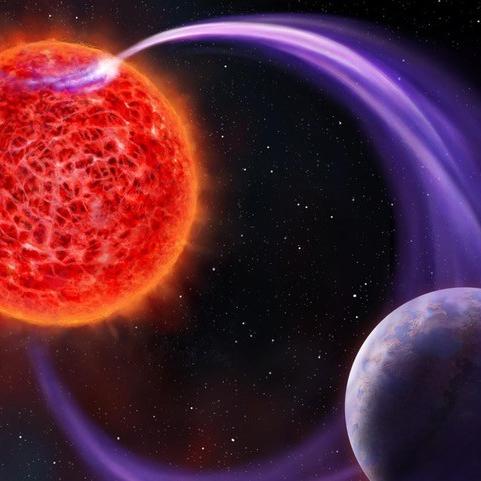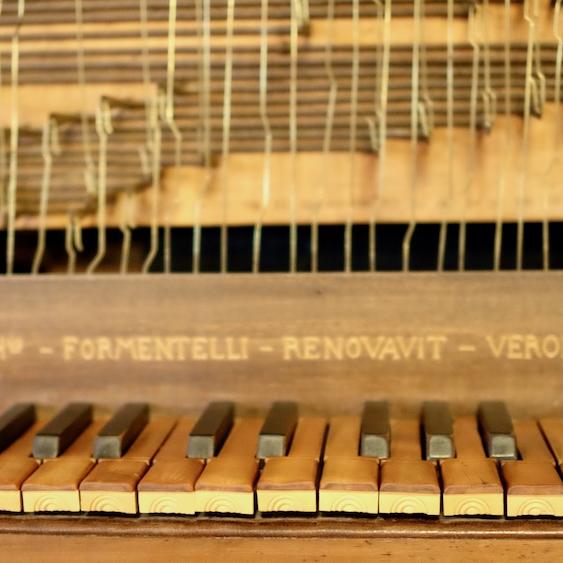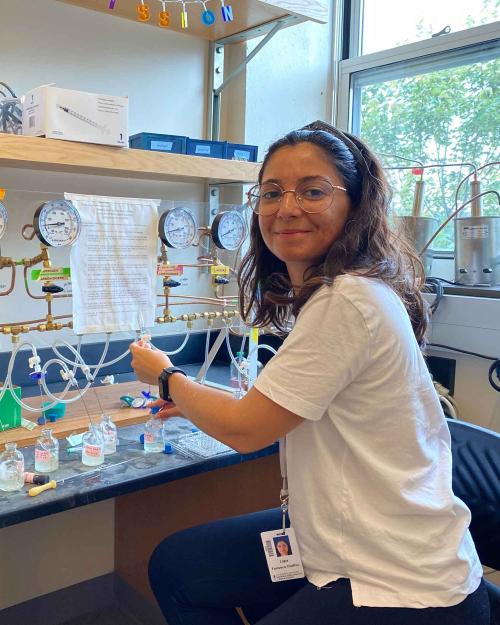Two early-career scientists at Cornell have been awarded Heising-Simons Foundation 51 Pegasi b Fellowships: Lígia Fonseca Coelho, a Fulbright Scholar in the Department of Astronomy in the College of Arts and Sciences; and Zach Ulibarri, a postdoc in Cornell Engineering’s Advanced Space Technology Research and Architectures Lab. The three-year postdoctoral fellowship provides recipients with resources, freedom, and flexibility to conduct theoretical, observational, and experimental research in planetary astronomy.
Fellows were selected based on research achievements and potential to impact the field of planetary astronomy, as well as their commitment to and plans for advancing diversity, equity, and inclusion in planetary astronomy, according to the Heising-Simons Foundation. The 51 Pegasi b Fellowship provides each of the eight recipients with an initial three-year grant of up to $430,000 to pursue their proposed research at a selected host institution.
Coelho studies microbes from extreme environments. She measures these microbes through a spectrometer, a device that allows her to capture their essence to create a color-coded guide designed to assist space missions in their search for life beyond earth in other planets. By building a reference library of substances that provide scientific evidence of past or present life adaptable to extreme conditions, she aims to ensure that no potential signs of life on icy worlds like Europa are overlooked.
“Microbiology has a lot in common with astronomy in the sense that it’s not something you can see with the naked eye, and both involve a search for life,” said Coelho. “Much like when you detect a cancer cell, astronomers must go outside the pattern to try to find something that is quirky that might be life.”
During her fellowship, Coelho will grow colorful biota (living organisms), expanding her catalog of potential biosignatures. Through meticulous modeling, she will determine how biopigments (substances produced by living organisms that have a color resulting from selective color absorption) mixed with different materials might appear through a telescope’s lens—equipping future space missions like JUICE and Europa Clipper with the tools to explore the outer edges of the habitable zone in our solar system and beyond.
Coelho also designs experiments to nurture astronaut comfort in highly demanding environment; in 2022, she rallied a group of aerospace engineers to launch the first menstrual cup into space.
Ulibarri is spearheading methods of minimizing damage to delicate building blocks of life when detecting organic chemistry on icy worlds, using cutting-edge spacecraft devices – such as the forthcoming Europa Clipper mission’sSurface Dust Analyzer (SUDA) to which he contributed. SUDA is designed to sample dust grains and study the surface chemistry of Jupiter’s second largest moon; Ulibarri’s graduate school experiments determined the speed limit for SUDA and other instruments like it as it impacts and studies icy dust grains that may have organic molecules necessary for life. Understanding this limit is pivotal in the quest to uncover signs of life beyond Earth.
“Most people don't really think about dust, but it’s incredibly important in space,” said Ulibarri. “You can use it to sample the chemistry of planetary objects without landing. You can fly by and scoop up those dust grains without the expense and difficulty of landing on the object.”
Ulibarri’s current focus is on an instrument called the electrospray ionization mass spectrometer (ESI-MS), the gold standard for studying biomolecules on Earth but which doesn’t yet work in space. Ulibarri is adapting spacecraft propulsion sources that work in the vacuum of space to serve as an ESI-MS so that scientists can use this Nobel-prize winning technology to minimize damage to the delicate building blocks of life as they are studied in orbit or with lander spacecraft. Unlike terrestrial ESI sources, this device could also be easily miniaturized to conserve precious payload capacity aboard a spacecraft mission.
During his fellowship, Ulibarri will perfect the vacuum ESI-MS by probing its ideal operating characteristics and mechanisms. He will run experiments to test its capabilities to detect analog samples from ocean worlds. Dr. Ulibarri’s work promises to enable new molecular surveys that respond to high-priority questions in search of alien life.
Established in 2017, the Heising-Simons Foundation 51 Pegasi b Fellowship is named for the first exoplanet discovered orbiting a Sun-like star. Previous recipients of the fellowship who were hosted at Cornell include Samantha Trumbo ‘13, Eileen Gonzales and Emily First.
Linda B. Glaser is news and media relations manager for the College of Arts & Sciences

